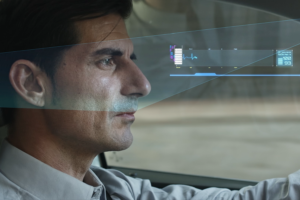
The company has won several projects for premium automotive customers focused on providing a better experience for drivers and passengers
Demand for intelligent driver and occupant monitoring systems has grown exponentially, with the market expected to reach more than €900M in Europe by 2027
Ficosa, leading global company in the research, development, production and marketing of advanced vision, safety and efficiency solutions for the automotive industry, continues to make progress in building the mobility of the future. The company has announced its entry into the in-cabin monitoring (ICM) segment through various disruptive projects it is developing for premium car manufacturers (OEMs).
In-cabin monitoring is a set of technologies that monitor and analyse activities inside the vehicle to improve safety and comfort for drivers and passengers. Ficosa offers advanced driver monitoring (DMS) and passenger monitoring (OMS) solutions based on an innovative integrated system of in-vehicle sensors, including cameras and radars, using cutting-edge technologies and a wide range of algorithms to process sensor data.
These systems enable a wide range of applications, such as monitoring the driver’s physiological state, detecting distraction or drowsiness, alerting to possible intrusion into the vehicle, and detecting unbuckled passengers, including those in the rear seats. One of the most important applications is the system that can detect when a child is alone and unattended in the vehicle, in order to activate alarms to ensure their well-being. New functions are also being developed, such as modulating the force of airbag deployment according to the height and weight of the occupant, and in-vehicle entertainment and communication applications.
Xavier Pujol, CEO of Ficosa, comments: “At Ficosa we have always been committed to anticipating the future, and our entry into the in-cabin monitoring market is a clear example of our long-standing vision. By using technological progress and innovation as drivers of change, we are focusing our efforts on a key area for the future of electric, autonomous and connected vehicles, which will become a priority for the entire automotive industry worldwide in the coming years“.
The decision to enter this new market is a reflection of the innovative and global nature of the company, which devotes around 8% of its annual revenue to R&D, operates in 15 countries and has a network of specialised strategic partners all over the world. Josep María Forcadell, Chief Technology Officer at Ficosa, added:
“This important milestone is the result of years of constant commitment to R&D at the company. With this new portfolio of solutions, we will continue to support the technological transformation of the automotive sector, helping to build a safer and more efficient mobility of the future for all.”
A growing market
The in-cabin monitoring market is experiencing remarkable growth, with sales in this segment expected to exceed €950 million by 2027 in Europe. One of the key factors driving the development of this area is the new safety regulatory framework. In recent years, new legislation has been introduced to address safety risks associated with driver fatigue or distraction. An example of this is European Regulation 2019/2144, which sets guidelines for vehicles with the aim of achieving higher levels of safety and environmental performance. As part of this package of measures, vehicles type approved from July 2024 and sold from 2026 onwards will be required to incorporate a number of intelligent systems, including advanced driver distraction detection.
Advanced safety systems are also a priority for Euro NCAP, the European automotive industry’s benchmark safety programme, which gives high ratings to vehicles with technologies that can detect potential driver inattention.
This trend is not unique to the European market, and is also on the agenda of policy makers in the United States and major Asian countries.
For example, in its proposed Moving Forward Act, the US government highlights the potential of driver monitoring systems to improve road safety and minimise driver distraction.
At the same time, the implementation and consolidation of intelligent driver and passenger monitoring systems is also a key strategic step in accelerating the introduction of autonomous driving, as they will enhance passenger safety, comfort and entertainment.








